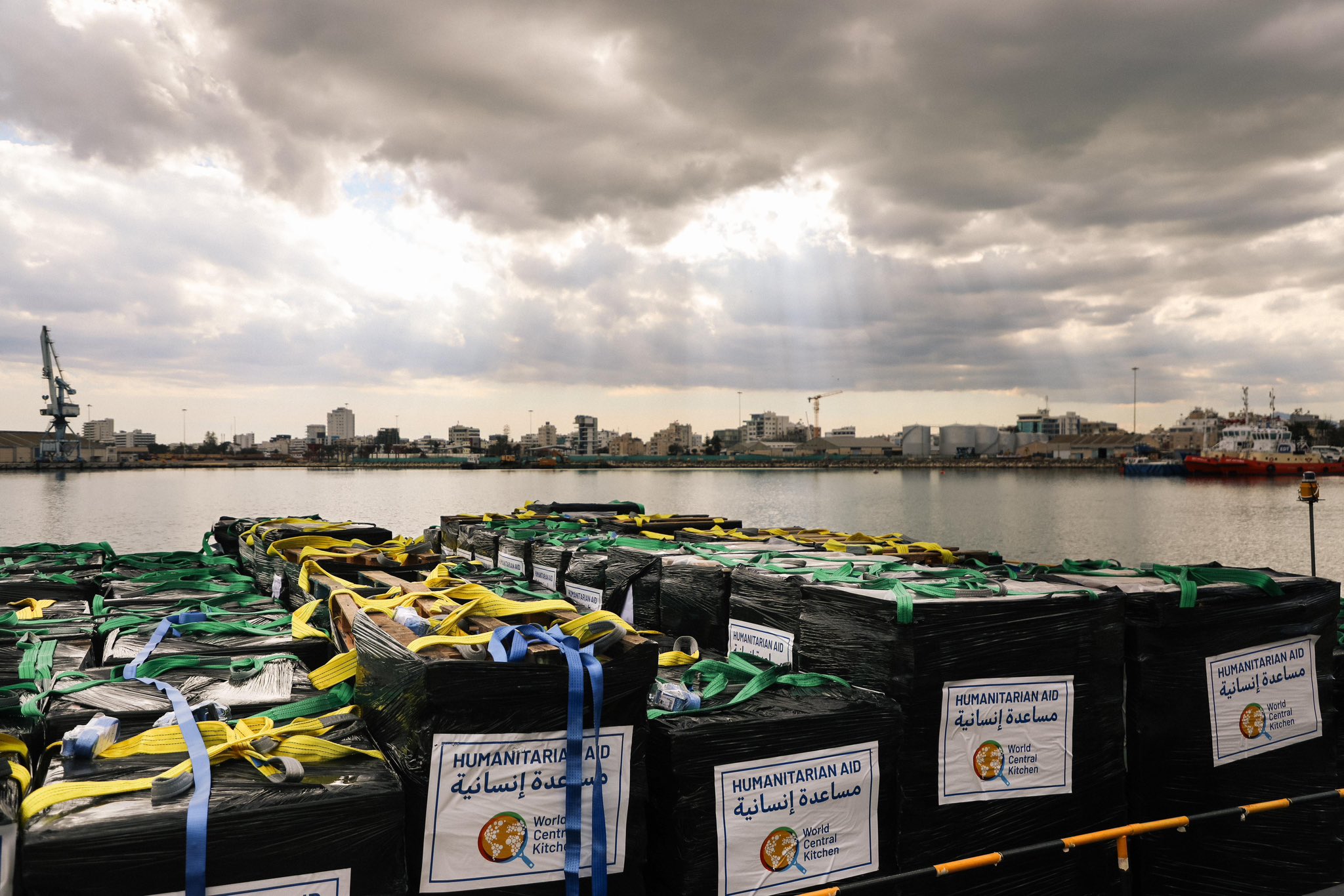The first ship left the Larnaca port in Cyprus to Gaza on Tuesday, carrying around 200 tonnes of food aid for Gaza.
Qatar is joining countries financing the entry of aid into Gaza through the American sea corridor, the Gulf state’s Foreign Ministry spokesman Majed Al-Ansari confirmed on Tuesday.
Al-Ansari made the remarks during a weekly press briefing in Doha, where he provided the first public Qatari comment on the aid maritime corridor.
The Qatari official also stressed that the port will not be an alternative to the need for the unhindered delivery of aid into Gaza.
On March 8, U.S. President Joe Biden directed the military to establish a temporary port in the Mediterranean on the coast of Gaza to enable the delivery of aid. Biden noted that the U.S. will not deploy its troops to the area.
“A temporary pier will enable a massive increase in the amount of humanitarian assistance getting into Gaza every day. And Israel must also do its part. Israel must allow more aid into Gaza and ensure humanitarian workers aren’t caught in the crossfire,” Biden said during the State of the Union Address.
On the same day, the European Commission said the countries participating in the maritime corridor include Germany, Greece, Italy, the Netherlands, Cyprus, the United Arab Emirates, the United Kingdom, and the U.S.
The first ship left the Larnaca port in Cyprus to Gaza on Tuesday, carrying around 200 tonnes of food aid for Gaza, U.S.-based charity, World Central Kitchen (WCK), announced. The journey could take up to two days, Reuters reported, citing Cypriot officials.
WCK is among the entities involved in the maritime aid mission, which is mostly funded by the UAE, according to Al Jazeera.
“Our goal is to establish a maritime highway of boats and barges stocked with millions of meals continuously headed towards Gaza,” Jose Andres, WCK’s founder, said in a statement.
The maritime corridor comes amid Israel’s blocking of the entry of aid into Gaza under the ongoing genocidal war. The war has entered its sixth month this week, killing at least 31,184 while starving the 2.2 million population.
The complete blockade on Gaza coupled with the brutal war has led to a catastrophic humanitarian situation, especially in the isolated north where aid has been mostly cut off.
As of Tuesday, at least 27 people, including 21 children, died due to malnutrition and dehydration, according to Palestine’s news agency (Wafa). The figure is only expected to rise amid the continuation of the war and blockade.
Several countries, including the U.S. and Jordan, have been carrying out airdrop missions in Gaza, though the aid provided has barely reached the starving population.
At least five people were killed over the weekend after some of the aid boxes fell onto crowds of people desperately trying to get aid. The United Nations has also recorded at least 14 incidents involving shooting and bombing aid seekers in Gaza.
The first such incident was reported on February 29, when Israel attacked Palestinians collecting aid at the Nabulsi roundabout, killing more than 100 people.
Qatar had condemned “the heinous massacre” while calling on the international community to protect Palestinians in Gaza.
Mediation efforts ongoing
Meanwhile, the Gulf state has been working alongside Egypt and the U.S. in hopes of securing a ceasefire in Gaza.
The matter was the media’s focus during the latest press briefing in Doha, where Al-Ansari said there is still no breakthrough in the mediation talks. He noted that the negotiations are continuing and “intensifying” in Ramadan.
“We are not close to a ceasefire agreement, and there is no convergence in language between the two parties to formulate and implement an agreement,” Al-Ansari told the press.
Talks in Cairo last week between officials from Qatar, the United States, and Hamas have failed to achieve a breakthrough after Israel rejected the Palestinian group’s demand for a ceasefire.
Sources had told Al Jazeera on March 7 that “the mediators in Cairo tried to bridge the gap between Hamas and Israel, but their efforts did not succeed.”
The talks failed after Israel rejected Hamas’ demands for a ceasefire in Gaza, the complete withdrawal of Israeli forces, and the unconditional return of displaced Palestinians to their homes.
Hamas confirmed its delegation left Cairo on Thursday “to consult with the leadership as negotiations and efforts to stop the aggression and the return of the displaced continue.”
Hamas’ key demand since last year has been a comprehensive ceasefire, something that Israel and the U.S. have opposed.
Since the beginning of the war, Israel cited releasing all captives as part of its goals, despite it killing at least 70 of them in Gaza.







